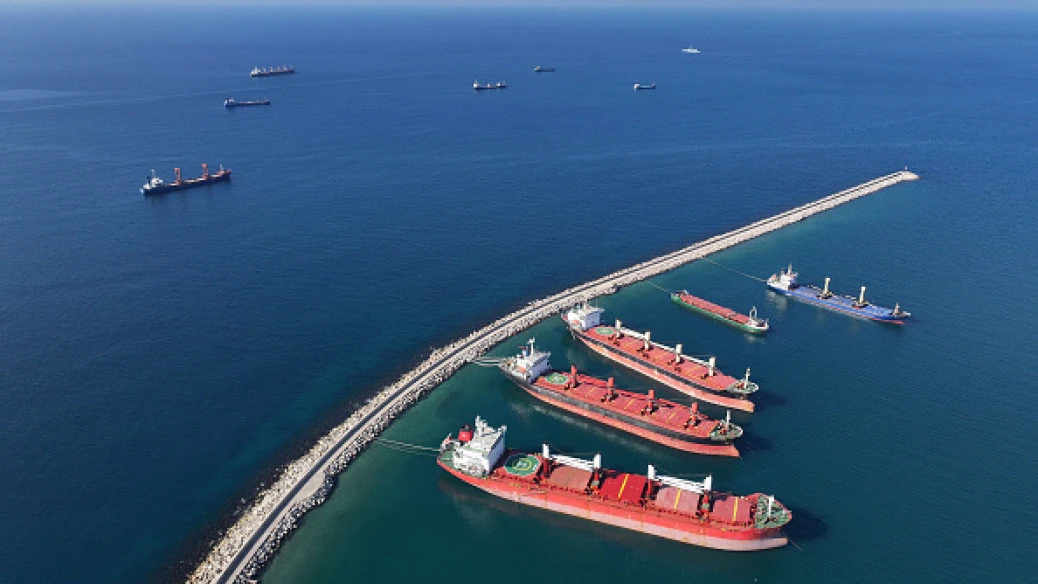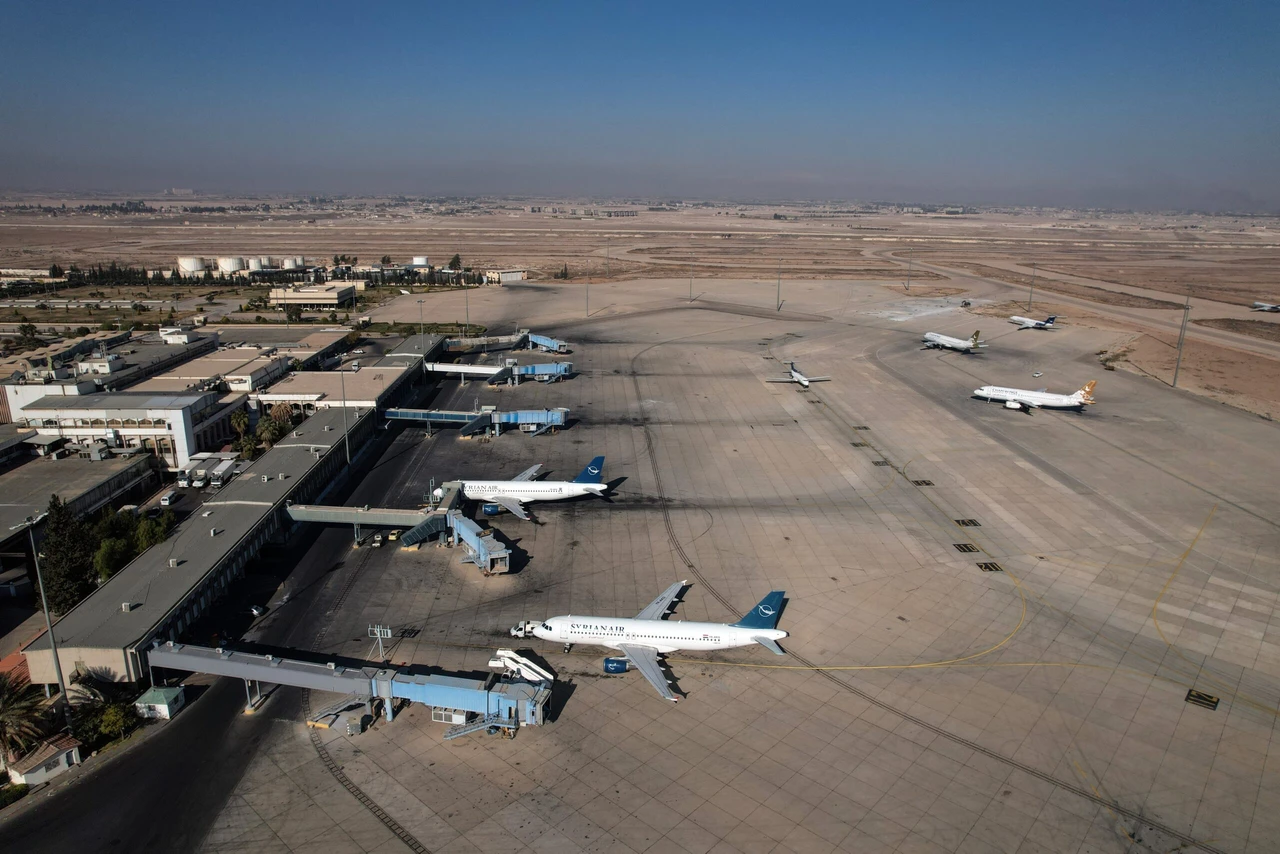Mitsotakis to visit Ankara amid tensions over Greece’s maritime spatial plan
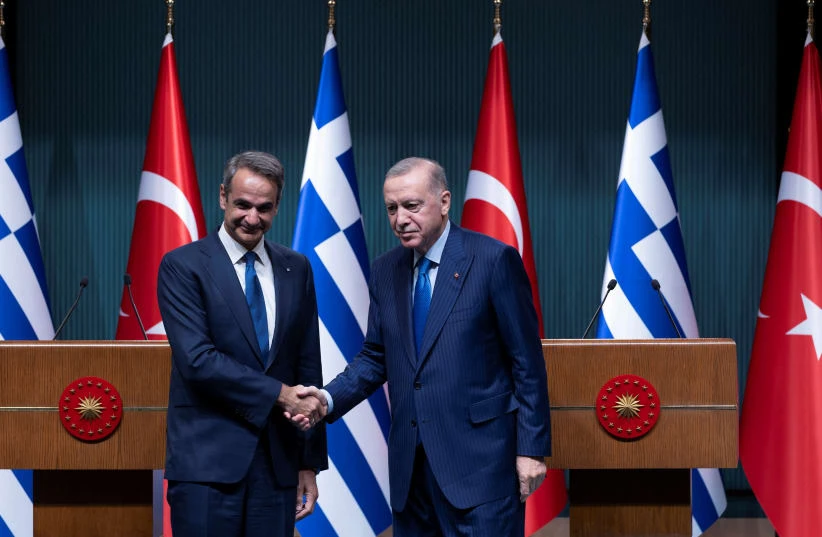 President Tayyip Erdogan and Greek Prime Minister Kyriakos Mitsotakis pose after a press conference at the Presidential Palace in Ankara, Türkiye, May 13, 2024. (AA Photo)
President Tayyip Erdogan and Greek Prime Minister Kyriakos Mitsotakis pose after a press conference at the Presidential Palace in Ankara, Türkiye, May 13, 2024. (AA Photo)
In his first public remarks since Greece published a maritime spatial planning map that includes contested areas of the Aegean Sea, Greek Prime Minister Kyriakos Mitsotakis said the map was both a geopolitical and European obligation, not a provocation toward Türkiye.
Speaking to Greek daily Proto Thema, Mitsotakis emphasized, “I am not looking for a fight with Türkiye. I don’t need conflict rhetoric to boost my domestic image.”
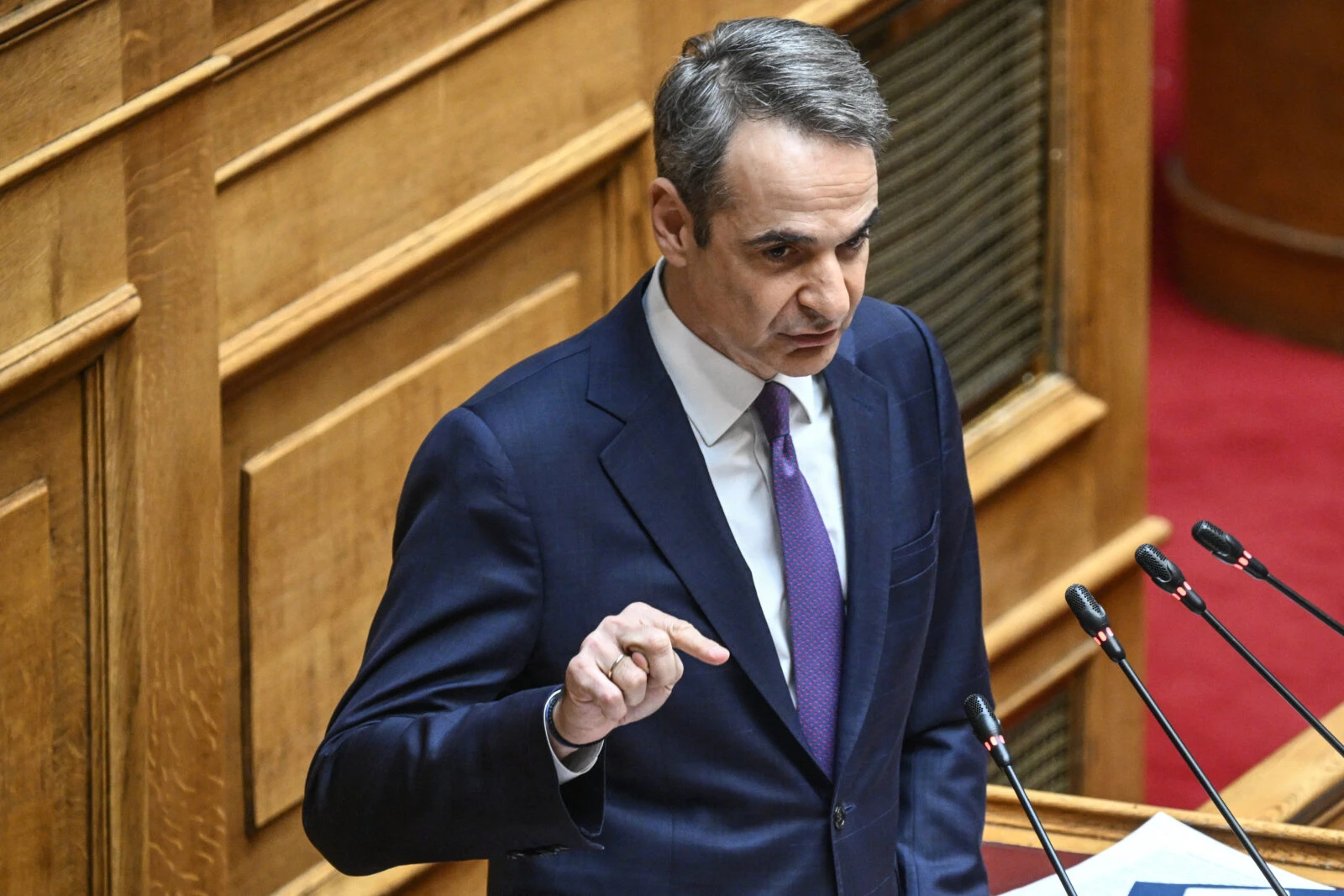
Greece’s submission of maritime spatial plan sparks criticism from Türkiye
Greek Prime Minister Kyriakos Mitsotakis has confirmed his upcoming visit to Ankara, stating, “I am not looking for a fight with Türkiye,” in the wake of escalating concerns over Greece’s newly submitted maritime spatial plan to the European Commission.
The plan, which reflects Greece’s maximalist claims in the Aegean Sea, including areas within Türkiye’s declared maritime zones, has been met with criticism in Ankara.
Despite the move, Mitsotakis emphasized his commitment to dialogue, describing his diplomatic approach as firm but measured: “Greece has always pursued its foreign policy with responsibility, strictly aligned with its principles.”
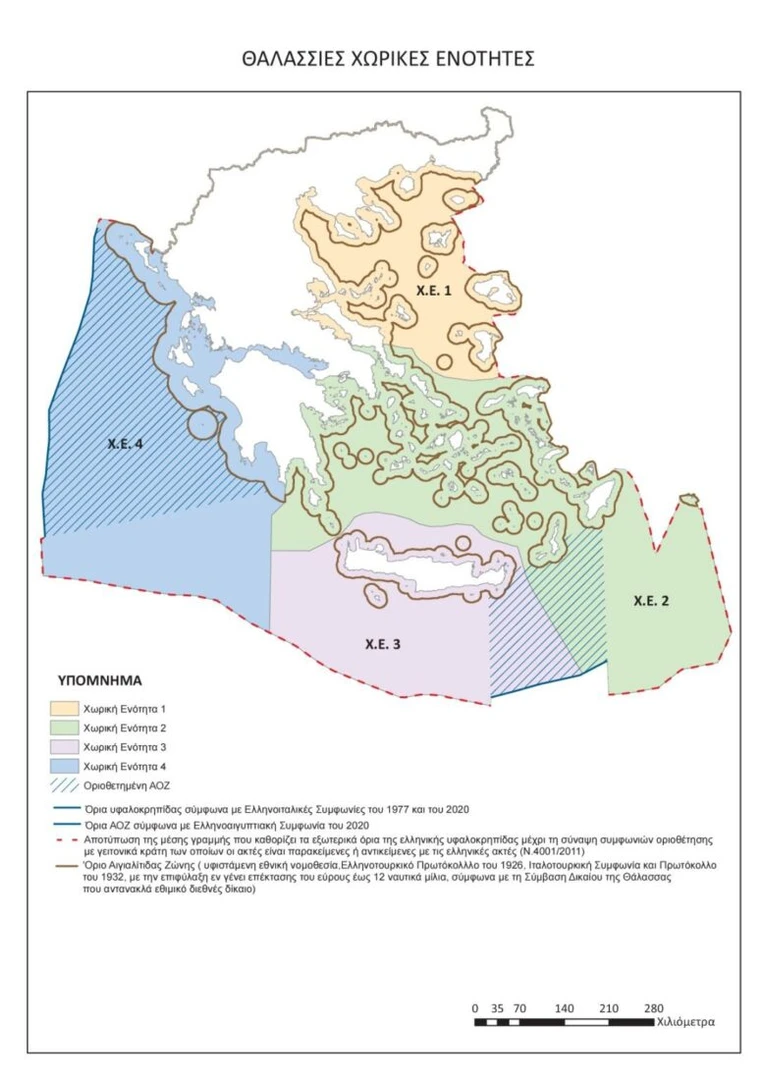
Türkiye rejects Greece’s maritime plan
Türkiye has also released its first academic study on Marine Spatial Planning (MSP), after Athens’, which attracted a significant response from Ankara.
In its official statement released on April 16, 2025, the Turkish Ministry of Foreign Affairs said, “Some of the areas specified in the ‘Maritime Spatial Plan’ declared by Greece within the framework of EU legislation violate Türkiye’s maritime jurisdiction areas in both the Aegean Sea and the Eastern Mediterranean.”
Türkiye emphasized it does not recognize Greece’s unilateral actions or maritime claims.
After the foreign ministry statement, the Turkish Defense Ministry also made a statement regarding Greece’s plans and said, “Greece’s recent Marine Spatial Planning, announced to the public, includes certain initiatives regarding the Eastern Mediterranean and the Aegean Sea that lack legal basis and are against international law. These are being closely monitored by us.”
“As the Turkish Armed Forces, we are fully determined to protect our rights and interests in the Aegean Sea and the Eastern Mediterranean,” Defense Ministry sources added.
“Such unilateral planning by Greece concerning maritime jurisdictions is contrary to international law. Türkiye believes that a fair, equitable sharing of maritime authority in the region is only possible through mutual dialogue and goodwill,” sources said.
“Greece’s unilateral actions, claims, and statements that disregard existing disputes and violate the rights of the Turkish side are unacceptable. These statements have no legal implications for our country,” ministry sources noted.
Within the scope of the Blue Homeland understanding, the Turkish Armed Forces continue their mission to protect Türkiye’s maritime rights and interests with determination and resolve. Developments in the region are being closely monitored, and necessary measures are taken promptly when required,” sources concluded.
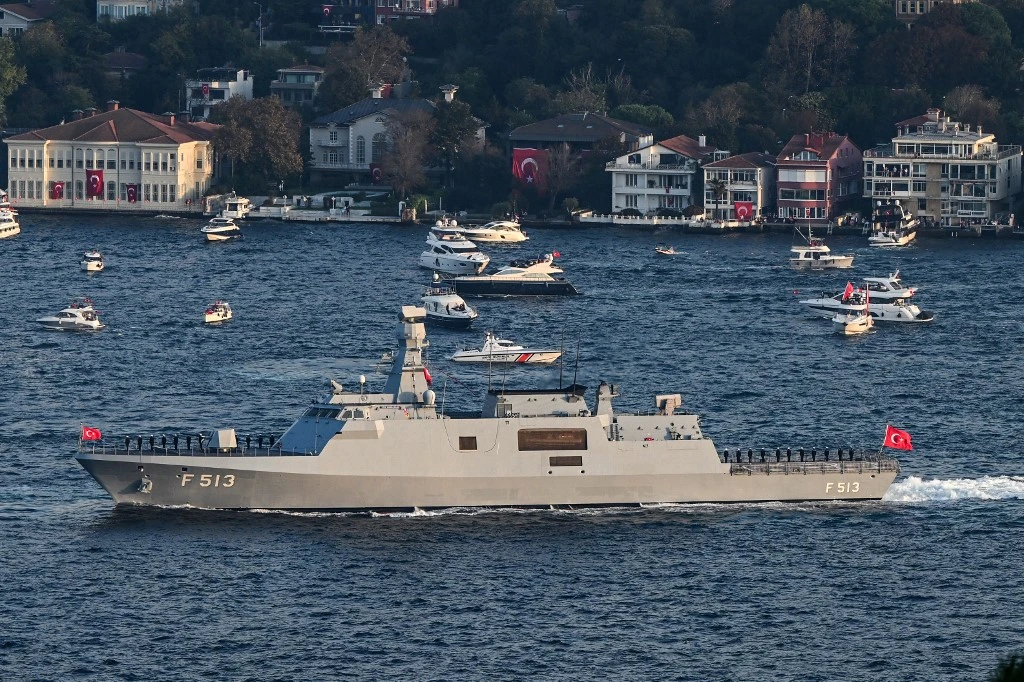
Ankara visit part of high-level bilateral mechanism
Mitsotakis confirmed the visit will take place within the framework of the High-Level Cooperation Council between the two countries, although the exact date remains undecided.
He clarified that the delay is “purely a matter of scheduling” and not due to political obstacles. “Yes, my visit to Ankara will take place. We are simply aligning calendars,” he said.
The visit comes at a time when both nations attempt to manage disputes over sovereignty and maritime boundaries, particularly in light of recent regional developments such as energy exploration projects in the Eastern Mediterranean.
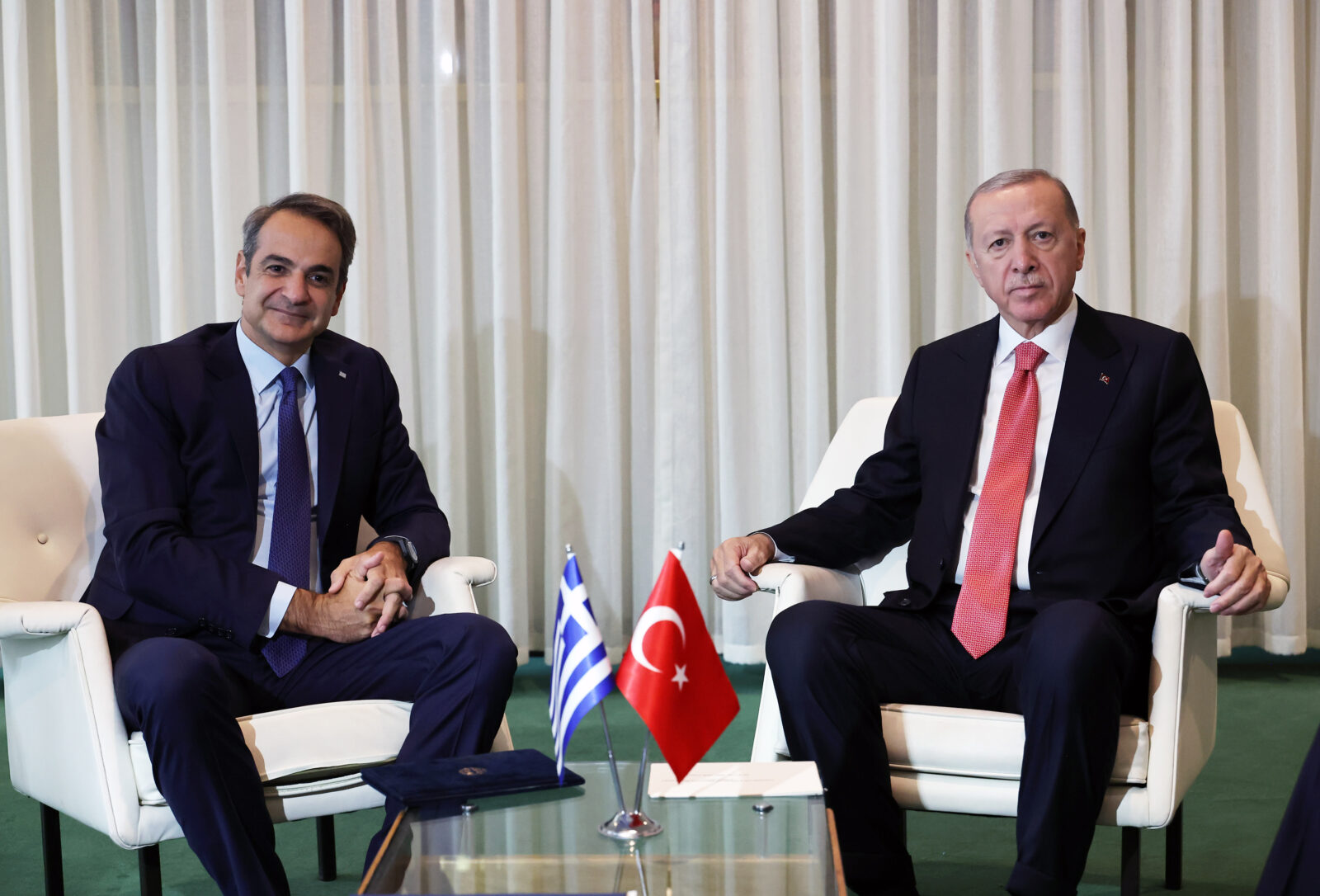
Greece defends its maritime claims as ‘geopolitical necessity’
When asked why Greece submitted its maritime spatial plan, Mitsotakis pointed to both environmental obligations and geopolitical strategy. “This action finalizes an issue pending for years. For the first time, Greece officially defines the extent of its potential continental shelf,” he said.
He argued that this move is distinct from other initiatives, such as the Great Sea Interconnector project, and should not be seen as a provocation toward Türkiye.
When the correspondent Giorgios Eugenidis asked, “You know, you are being criticized, you have been criticized mainly from the right that you are yielding to Türkiye as a government. That for the sake of “calm waters”, where we go to exercise our sovereign rights, when Türkiye “roars” we retreat.”
Greek Prime Minister Kyriakos Mitsotakis answered by stating:
Then why did we go ahead and give Chevron the opportunity to explore the prospect of natural gas deposits south of Crete within Greek sovereign rights, which, I want to remind you, stem from the agreement we have made with Egypt? If this is not a practical exercise of sovereign rights, then what exactly is it, Mr. Eugenidis? But let me tell you something else: I am not looking for a quarrel with Türkiye, nor do I consider that I need, in order to strengthen my internal prestige and speak to a specific audience, to speak a language of tension and rhetorical outbursts.
Greece has always pursued its foreign policy responsibly, remaining unwaveringly committed to the established principles of Greek foreign policy, while practicing a diplomacy that has succeeded and has made Greece stronger and, let me say, greater. Because during our time, territorial waters were expanded, two Exclusive Economic Zone agreements were signed.
During our time, the country acquired a long-term armament program, which significantly strengthens the deterrent capability of the Armed Forces, while also emphasizing domestic added value.
During our time, the borders in Evros and at sea were shielded. And we essentially played a role in changing the entire European policy regarding the migration issue.
Greek Prime Minister Kyriakos Mitsotakis
The newly unveiled map includes Greece’s maximalist continental shelf claims and maritime zones that overlap with areas Türkiye considers part of its own jurisdiction.
Despite this, Mitsotakis confirmed his upcoming visit to Ankara for the High-Level Cooperation Council meeting, noting that while the date is not yet confirmed, there is “no reason for it to be postponed or cancelled.”
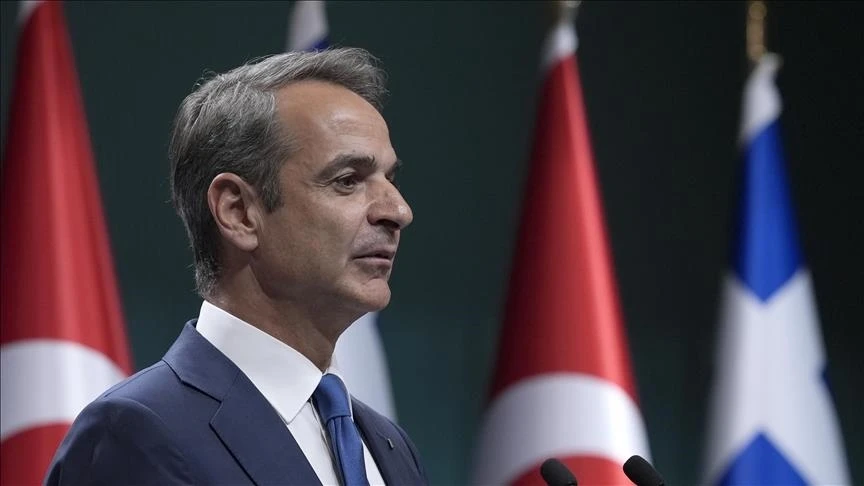
Commitment to dialogue despite disagreements
Reaffirming his diplomatic stance, the Greek premier stated, “We can disagree strongly, but we must do so civilly. Disagreements must not escalate into rhetoric or militarization.”
Mitsotakis also stressed the importance of continued dialogue, “The more we talk, the better,” he said.
While no firm date has been announced for a meeting with President Recep Tayyip Erdogan, Mitsotakis made it clear that discussions are ongoing.


